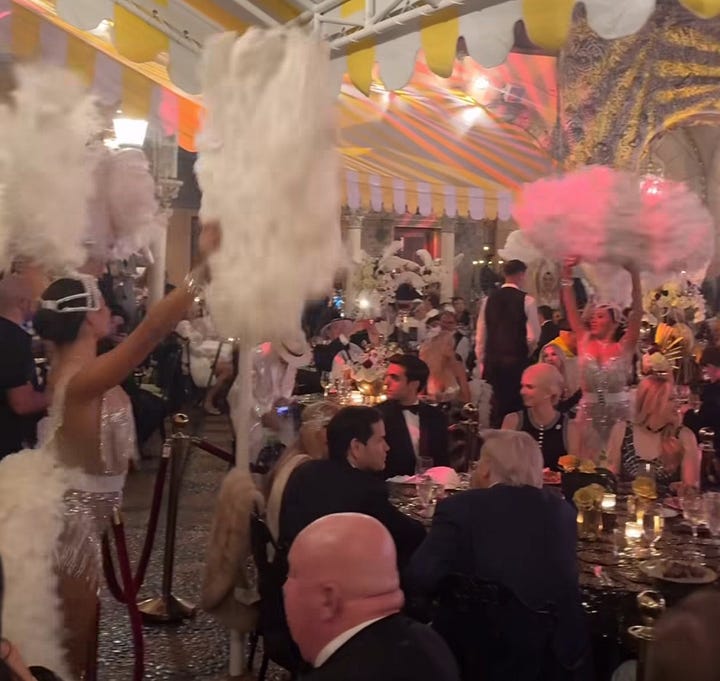The Great Gut Punch
Zoom TODAY, Noon PT / 3PM ET
The Great Gatsby (1925) is a classic American novel set in the years before the Great Depression. It portrays a mysterious, wealthy New York man with an obsession to repeat the past—who uses his money to get what he wants. And when it does not want him back, he collapses.
“The truth was that Jay Gatsby, of West Egg, Long Island, sprang from his Platonic conception of himself.”
Jay Gatsby was a construction of James Gatz, a poor farm boy from North Dakota determined to compensate for his humiliation and affirm his self-image in the eyes of Daisy—whom he had loved five years earlier as a poor soldier. To woo her, Gatsby puts on a series of parties every weekend that looked something like this:




“Men and girls came and went like moths among the whisperings and the champagne and the stars.”
Spoiler alert: Gatsby’s love was not really for Daisy. It was a projection of his narcissism, his ego, attempting to build his own self-image in the real world. When Daisy ultimately rejects Gatsby, his world collapses and he winds up dead in the swimming pool.
The Great Gatsby is a romantic tragedy on its surface—and a biting social commentary. But underneath it’s one of the best literary examples of narcissistic collapse.
“Can’t repeat the past? … Why of course you can!” —Jay Gatsby, Chapter 6
Gatsby believed that if he just spent enough money, and created enough artifice, he could mold the world to actualize his internal reality. But in the end he was just a symptom of the eternal—and destructive—human desire to go backwards to relive a history that never existed. As the narrator Nick Carraway says in the book’s final line:
“So we beat on, boats against the current, borne back ceaselessly into the past.”
Donald Trump’s Gatsby-themed Halloween party was not “out of touch” or an ignorant display of ostentatious wealth in a time of deep fear and uncertainty; it was a ritualized display of moral inversion.
During his party, SNAP (food stamps) ran out of funding due to Trump’s shutdown, leaving 42 million Americans at risk of hunger. This weekend, due to his cuts, health insurance becomes out of reach for millions more.
Nevertheless, he persisted:
Donald Trump is the macroscopic version of what F. Scott Fitzgerald tried to warn us about a century ago in his novel: the degradation of morality, culture, and truth. In the wake of the Great Depression, Fitzgerald wrote about the American attitude in the 1920s:
“America is going on the greatest, gaudiest spree in history and there is going to be a price to pay for it all.” —Early Success, 1937
Trump’s party was a deliberate sign—the semiotics couldn’t be clearer. Trump does not see Gatsby as a tragically flawed egotist—he sees him as a role model. Like so much of Trump’s psychology, he steals what he wants and mirrors it. His party was a hyperreal ritualized mirror of his own internal collapse—hiding from his inside world by remaking the outside world look like his own self-image.
The destruction of the White House, the extrajudicial killings in Latin America, and the systematic violence against immigrants and citizens are all part of the same pattern. As I have warned, this type of personality does not have a bottom. It is a void, an emptiness that needs to be filled, lest it be annihilated—by Daisy’s rejection, or by the Epstein files.
Zoom today to discuss and process this madness. After missing last week, there is so much to catch up on. As always, it’s open to any and all questions and comments. If you have time at Noon PT / 3PM ET, we have a great community of folks; it’s always a great conversation.
Hope to see you! Details below.



